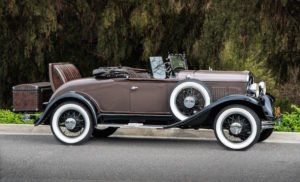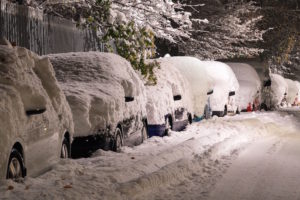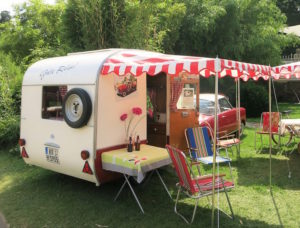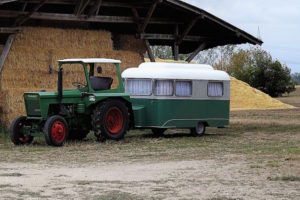VIEW OUR COMMERCIAL
As seen on TV

CHOOSE THE EASY OPTION FOR YOUR INSURANCE, WE’LL GET YOU A QUOTE IN NO TIME AT ALL.
Posts for:
Hiring out your classic car can be a great way to get a little extra income from your passion. It can help pay for your maintenance bills. And it can help you to justify keeping your prized possession. But there are some key considerations, like the implications on your classic car insurance to think about. Here’s our Easy2understand guide to what you need to know.
Ways to hire out your classic car
There are two main hiring options to consider if you want to make some extra cash from your classic car.
1) Using your classic car as a private hire vehicle
The first type of hire you may consider for your classic is where you’re driving and taking paying passenger(s). For example, you’re using your classic Rolls Royce for a wedding.
The wedding market is lucrative, and vintage vehicles can command big fees. For example, Bridebook recommends that the happy couple budget £395 if they want the use of a classic Bentley for three hours.
Bear in mind: If you do decide to hire your classic car as a wedding, or any other event, vehicle, you’ll need to apply to your local council for a Private Hire Vehicle Licence (PHV licence). You’ll need this licence even if you only hire your vehicle once a year.
2) Hiring out your classic vehicle for others to use
The second way of hiring out your classic car is to paying customers who will drive your vehicle on the road for a set period of time. This is attractive to people who like the idea of having a classic car but don’t, or can’t, go the whole way and buy one. These ‘experience’ days can be especially popular with people looking for a more unusual weekend break or honeymoon. And there are lots of classic and vintage car hire companies out there that you can use to hire out your classic.
You may also want to consider hiring out your vehicle for use on photo-shoots or film and TV sets. Again, there are agencies that specialise in sourcing vehicles of all ages and makes for film. Be wary of any company that charges a fee just to register – there is no guarantee that your vehicle will be used, so you could be out of pocket. Look for a reputable company that pays a good fee and will ensure comprehensive insurance is provided whilst your vehicle is being used on set. Don’t forget to check things like agreed value or modifications are included.
Bear in mind: If your car is in Concours condition or you would be upset if it got the old scratch, then hiring it out to others may not be the best option for you.
Insuring your classic car for hire
If you’re planning on hiring out your classic car and taking paying passengers, you’ll need ‘hire and reward’ car insurance. This is specifically designed for anyone who takes payment in return for taking passengers. If you have a classic, it’s likely that you won’t be using your car for hire and reward every day. That means that standard hire and reward insurance may not be the best value for you. Instead, speak to a specialist classic car broker like Easy2Insure. We can look at all your options and how you intend to use your vehicle. That way, we can tailor your policy to meet your specific needs at the best value price possible.
Insuring imported classics for hire
If you’ve got a left-hand drive classic, like a Chevy or a Plymouth, that you want to hire out, you’ll need specialist insurance. Easy2Insure can cover imports and all ages and specifications for your peace of mind.
It’s Easy2Insure your classic car
Making money from your motor can be relatively straightforward. But you need the right insurance, or you could find your money-spinning idea costs you more in the long run.
At Easy2Insure we understand that your classic car needs more than just standard insurance. Whether you plan to hire it out or not, we offer competitive quotes that give you real peace of mind. As an independent insurance broker, we are free to shop around to find you the best price without compromising on the level of cover. This includes:
- Flexible limited mileage options
- Modifications
- Agreed value cover options
- Modifications covered on a like for like basis
- Uninsured loss recovery for non-fault claims
- Legal cover up to £50,000
- Left-hand drive models
We can also help you to keep the costs of insurance down with:
- Second car insurance policies
- Multi-car insurance policies for collectors
- Security discounts
- Club member discounts
Call our friendly team on 0800 917 9522 or get a classic car insurance quote today.
Dark, wet nights and frosty mornings are just around the corner, so it’s time to prepare your car for winter. A few minutes spent now could save you hours, and £££s this winter. Read our top 8 tips to get your wheels ready for the cold weather.
1) Look after your lights
It’s possible you’ve not driven after nightfall for the whole of the summer. But as winter approaches and the clocks change, it is getting darker earlier and earlier. Now is the time to check all your lights are working properly. This will not only make it safer for you to drive in the dark, but it could stop you receiving a fixed penalty notice. For example, if you’re stopped by the police because a brake-light is not working, you may receive a fixed penalty fine of £60 and three penalty points on your licence.
2) Check washer fluid levels
Your washers help keep your screen clear all through the year and are vital for safety. In the winter, lots of dirt and salt can be thrown up onto your screen as you drive along. If your washers run out, you risk having to drive with severely impaired visibility. It’s a good idea to use screenwash in your washers. This can help to break down the dirt and salt residue that’s likely to hit your screen during the winter. If you’re driving in frosty conditions, it can be even more challenging if your washers are also frozen. Luckily, screenwash and water also have a lower freezing point than using water alone.
3) Time for new tyres?
Check your tread. If it’s borderline legal, then the winter is the time to get some new tyres. Wet, icy roads mean you’ll rely on the tread for grip much more.
If you drive a lot, it may be worth considering buying specialist winter tyres and storing your other tyres until the spring. Winter tyres are developed specifically for use in cold conditions. The tread is cleverly designed to disperse water or snow. That improves your contact with the road, which means better grip in colder weather than with standard tyres. This means you may be less likely to spin off on an icy corner. This improved grip can also help to reduce your braking distance, helping you to stop quickly.
Winter tyres are not a legal requirement in the UK. However, if you’re heading for the Austrian slopes in your car, be aware that in Austria winter tyres are mandatory in the winter months. You’ll face a hefty 5000 EURO fine if you’re stopped driving without them.
4) Check your battery
Cold weather can affect your battery. If your battery is getting old and starting to fail, that could mean the difference between your car starting or not. Avoid turning up to work or school late by checking your battery and replacing it if necessary.
5) Add antifreeze
Anti-freeze can be added to your vehicles cooling system to stop it from freezing when the temperatures plummet. You can buy it in concentrated form or ready-mixed with water. If your car was made before 1998, it’s likely you’ll need an anti-freeze that contains silicates. If it was made after that date, it’s likely you’ll need one without silicates using Organic Acid Technology (OAT) instead. Check your user manual. Make sure your engine is topped up, especially as the cooler months approach.
6) Be prepared
If you do break down in the winter, you’ll be glad you were prepared. Put together an emergency kit, which you keep in your boot, just in case. It could include:
- A torch, to give you light if something happens after dark.
- A hazard warning triangle, to notify other drivers that your car has stopped.
- A high-vis vest, so you’ll show up if you do need to get out of your car when it’s dark.
- A drink and some food, in case you get stranded for some time. For example, due to a sudden snowstorm.
- A shovel, so you can dig yourself out if you are stuck in the snow.
- Warm clothes or a blanket. If you need to get out of your car on a cold winters day or night, you’ll quickly feel the chill, so keep a warm coat handy in the boot. A blanket can also be useful, especially if you are forced to spend the night in your car.
It’s also wise to keep your mobile phone, and a battery charger, handy.
7) Beef up your breakdown cover
Is your breakdown cover up to date? Does it include homestart? Will it take you home if your car can’t be fixed on the roadside? If you’re driving this winter, you can buy extra peace of mind with comprehensive breakdown cover. This is often available at a discounted rate if you purchase it at the same time as your car insurance. Speak to your broker for more details.
8) It’s Easy2Insure your car this winter
If the worst does happen and you crash on black ice or your engine is destroyed when you drive through a flood in the road, you’ll want to know your insurance covers you. Speak to our friendly team at Easy2Insure for cover you can count on at a great price. Call us today on 0800 917 9522 or get a free quote now.
Now the nights are really drawing in, it’s time to turn your attention to storing your caravan for the winter. Nothing beats the feeling of freedom when you hit the road with your own caravan in tow. You’re free to go where you want and stay where you want. But even the hardiest of us caravan owners normally reserve our road trip adventures in the UK to the warmer months. If you’re going to be leaving your caravan unused for the next couple of months it pays to prep it properly. Time spent now can save money in the long run and ensure your caravan is ready to go next spring. If you’re not sure what you need to do, here are 10 quick tips to store your caravan for winter.
1) Sort out security
It can be heart-breaking to go to your caravan and discover it’s been broken into, or worse …not there! When it’s left over winter your caravan is a sitting target for thieves. So it’s worth thinking carefully of ways to keep it as safe and secure as possible. If you’re storing your caravan away from your home, think carefully about the location. Is it in a well-secured area? Fitting extra security devices like locks, security spikes, alarms, and CCTV can also deter criminals. And it’s a good idea to remove valuables, like TVs, that could be an added temptation for thieves.
2) Lose the leaks
Water leaks are the bane of every caravan owner. Checking the rubbers seals around your windows and doors takes only a few minutes, but could save you hours of cleaning up again. Look for the tell-tale cracks that show the rubber is perishing. Then get these replaced to help keep the damp and water out.
3) Dismiss damp
It’s not just leaks that can result in water damage. When your caravan is shut up for weeks at a time you run the risk of condensation forming and causing damp and mildew. Once formed, the dark fungal spots can be tricky to shift completely. Instead, take preventative action. Choose a bright, sunny day to air your caravan thoroughly. It’s worth checking the weather forecast to make sure humidity is low on that day, as moisture in the air is not visible. Carefully check that the inside of the caravan is totally dry before shutting it up for the winter.
Some DIY remedies to help prevent damp include using bowls of salt, which will absorb moisture from the air. Or you could try using shop-bought humidity crystals, which do the same job. Check and change/dry out your salt/crystals throughout the winter months so they can keep on doing their job.
4) Awesome awnings
Take out your awning and give it a good clean. Make sure it is 100% dry before putting away.
5) A fresh fridge
Before shutting up your caravan for the winter, be sure to double check you haven’t left anything in your fridge. You really do not want to discover a pint of milk next spring that has been left since the summer. Give the fridge a good wipe down to remove any traces of food. Using bicarbonate of soda can be especially effective and will help to neutralise any odours. And leave the fridge door open to allow air to circulate.
6) Forget flat spots
Even if you’re not taking your caravan out, try to move it around regularly to avoid flat spots forming on the tyres. If left in one place all winter, the weight pressure will damage the tyres. If you do take it for a quick drive on the road, make sure all your caravan insurance and breakdown insurance is in place.
7) Collect up the cushions
It’s a good idea to remove all the soft furnishings, like cushions, and store them at home. These are always a magnet for damp, and despite all your efforts can end up smelling musty if left in situ. Instead, take them home, wash them, dry them thoroughly and store until you’re ready to set off for your next adventure.
8) Beat battery blues
Remove the battery and store somewhere dry and cool unless it’s connected to your caravan alarm system. And don’t forget the batteries in items like clocks or your TV remote. These can leak if left unused, damaging the items containing them.
9) Get out the gas
It’s prudent to remove your gas cylinders before storing your caravan for winter. Leave them in a safe, cool, well-ventilated space.
10) Wipe out water woes
Freezing temperatures can mean frozen pipes and splits. And when frozen pipes thaw that can mean water damage. Make sure your water systems are totally empty over winter. Open and drain all the taps, not forgetting your shower. And remove your water filters to store them somewhere frost-free.
Another way to protect your caravan this winter
Just because your caravan is off the road, it doesn’t mean you won’t need insurance. Protect it from fire, storm damage, and theft over the winter months with caravan insurance. It’s Easy2Insure your caravan when you call our helpful team. We’ll use our industry contacts to secure you a value for money deal that is tailored to your specific needs. Just call us on 0800 917 9522 or get a free quote today.
It’s that time of year to dig out the scarf as the long, chilly nights draw in earlier and earlier. Damp, foggy mornings are becoming the norm. And for many of us with motorcycles, it’s the time to swap two wheels for four for a couple of months. Even if you’re hanging up your leathers for the winter, it’s still just as important to take good care of your motorbike. That way you’ll be ready to hop back on for a spin as soon as spring has sprung. Follow our nine quick tips and store your motorcycle for winter the right way.
How to safely store a motorbike over winter
1) Top up the tank
Leave your bike with a full tank of fuel to minimise the chance or condensation building up inside the fuel tank and causing corrosion.
2) Change the oil
Old oil can contain sludge that could settle in the sump if you don’t ride your bike for some time. If that happens, the sludge will be the first thing into the oil pipe when you do go out again. By changing the oil for fresh, you limit the risk of that happening.
3) Keep it squeaky clean
It’s important to get your bike as clean as possible before you leave it over winter. If you have been tempted to hit the road on your motorbike in the winter, be aware of the potential damage gritted roads could do. The salt will corrode metal so needs to be thoroughly removed.
4) Make sure your motorcycle is completely dry
If you’ve given your bike a good clean, the next thing to do is to make sure it is as dry as possible and given a final polish. This will help to limit the possibility of condensation building up. Remember, water gets everywhere, so carefully dry out with a cloth and leave somewhere that air can circulate freely around your bike.
 5) Don’t lose your rag
5) Don’t lose your rag
You’ve washed, dried and polished your motorbike. Now it’s time to prevent new damp getting into the bike parts. Stuff an old rag into the end of the exhaust system to help prevent cold, moist air finding it’s way into the exhaust system. Just don’t forget to remove it before you start your motorbike up again.
6) Take charge
Leaving your bike unused for a couple of months can mean the battery loses its charge. Avoid digging out the jump leads and prevent this situation by hooking it up to a battery conditioner (also known as a trickle charge). You’ll need an electric supply in your garage, but you’ll be pleased to hear it uses only a very small amount of electricity to keep the battery in tip-top condition.
7) Stop the flat spots
Leaving your motorbike in one place over winter can cause excess pressure in just one position on the tyres. Then, when you come to use it, you’ll find flat spots have formed and damaged the tyres. To prevent this, use paddock stands to elevate the wheels off the ground safely. Alternatively, go to your bike once a week to rotate the wheels and avoid pressure occurring in just one place.
8) Cover up
Covering your bike with a cloth can help to protect it from dust and dirt. It’s better to use a cover that is made of a breathable fabric, to avoid the build-up of condensation. Some experts recommend that you avoid cotton, as this can absorb and hold onto moisture and hold it next to your bike.
Another option is a bike ‘bubble’ like the one made by Carcoon. This has the benefit of encouraging airflow around your bike as well as offering an added element of protection against accidental knocks and bangs.
9) Location, location, location
It’s best to store your motorcycle away from direct sunlight, which causes temperatures to fluctuate leading to condensation. If your garage has a window, think about how the sunlight shines through it over the day. Then park your motorcycle away from where the sun shines in.
Another way to protect your motorcycle this winter
Whether you ride a classic or have an everyday run-around, it’s Easy2Insure your motorbike. Our friendly team at Easy2Insure has the knowledge and experience you need to get the right level of cover at the best possible price. As independent brokers, we’ll shop around insurance companies big and small and negotiate the best value prices on your behalf. Call us on 0800 917 9522 or get a free quote now.













